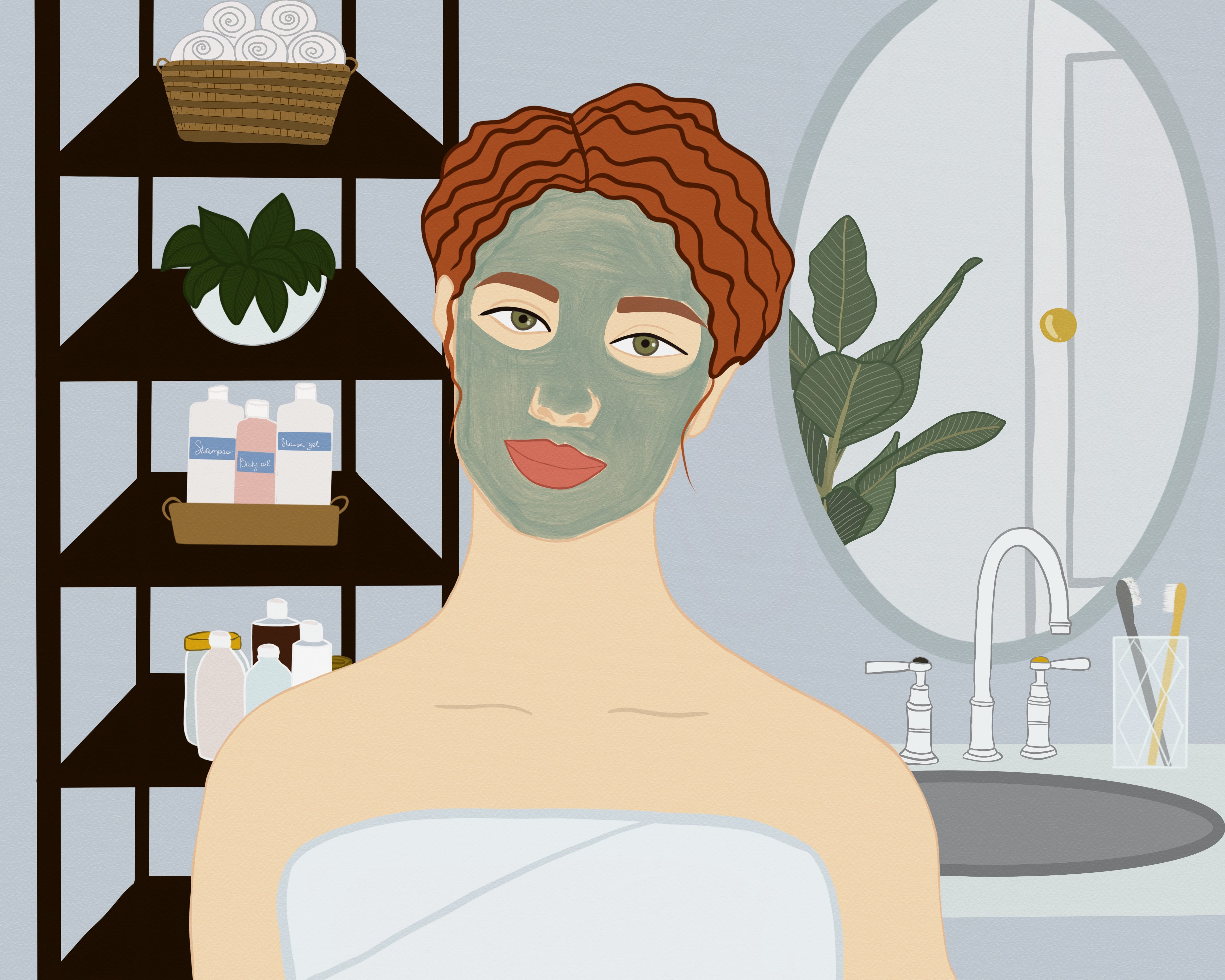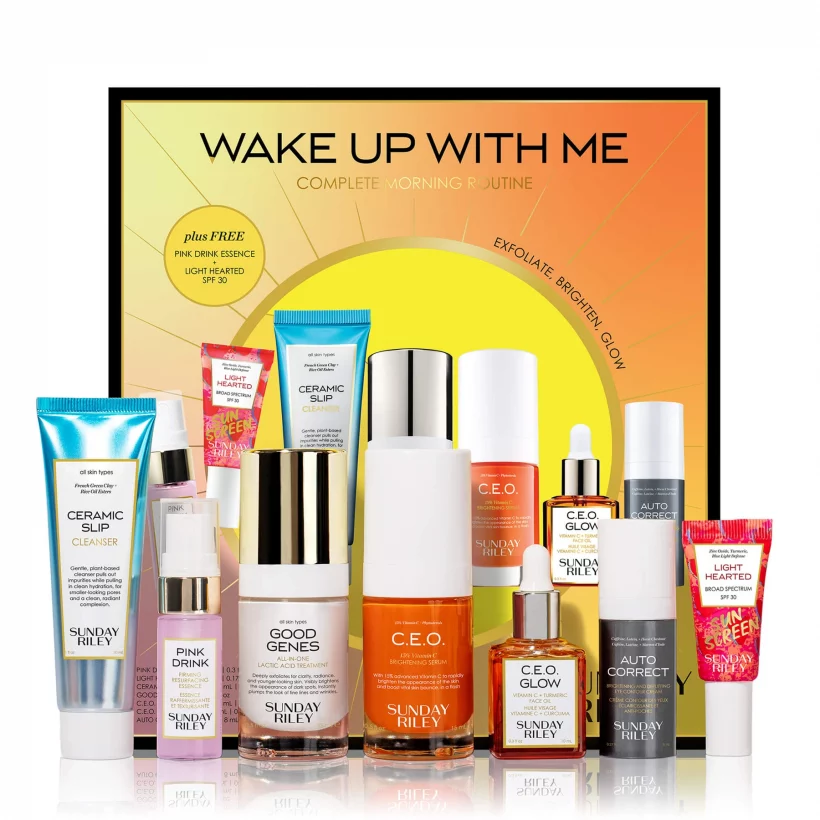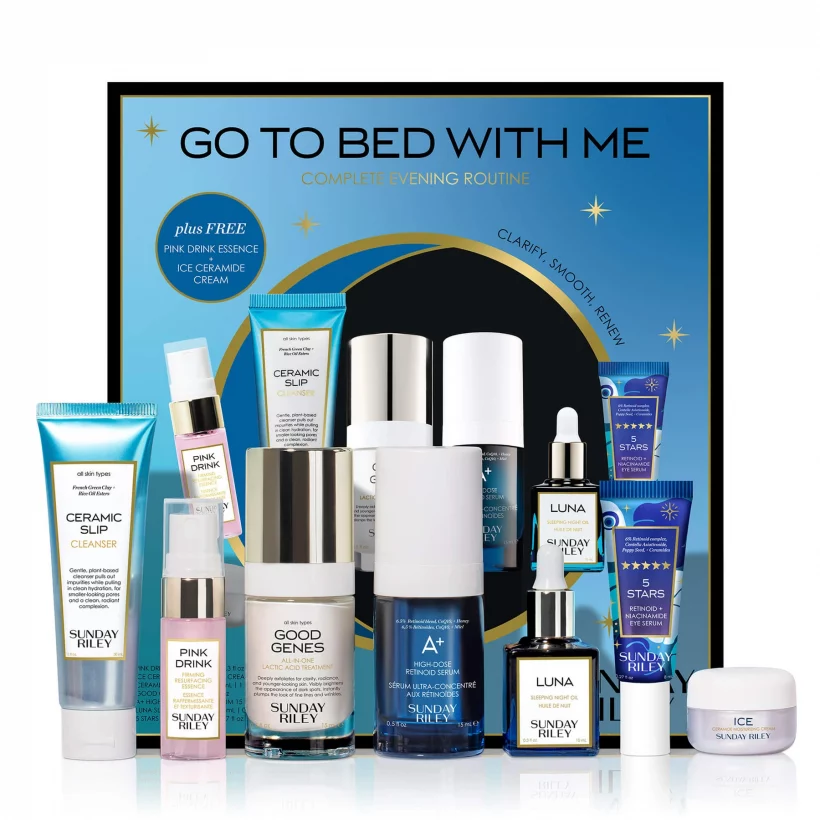Here’s a sampling of the beauty and wellness goals I’ve attempted to stick to: Do a weekly hair mask, start the day with a shot of apple cider vinegar, use a jade roller, do regular facial light treatments, use a brow-growth serum, exfoliate lips regularly, track my water intake, de-plastic my kitchen, start each day with meditation, take a 1-minute cold shower daily. I have incorporated zero of those into my regular routine. And I don’t want to call myself a failure, because I also have “practice self-love” on my wellness to-do list. But how on earth can I actually stick to these well-meaning habits? I enlisted a few pros to get their input: Holly Dolke, a fitness expert with more than 1.3 million YouTube subscribers, and hairstylist Emily Cable, from West Hollywood’s über-chic Nine Zero One Salon, where Nina Dobrev, Julianne Hough and Sarah Hyland are regulars.
Help! Where Do I Start?
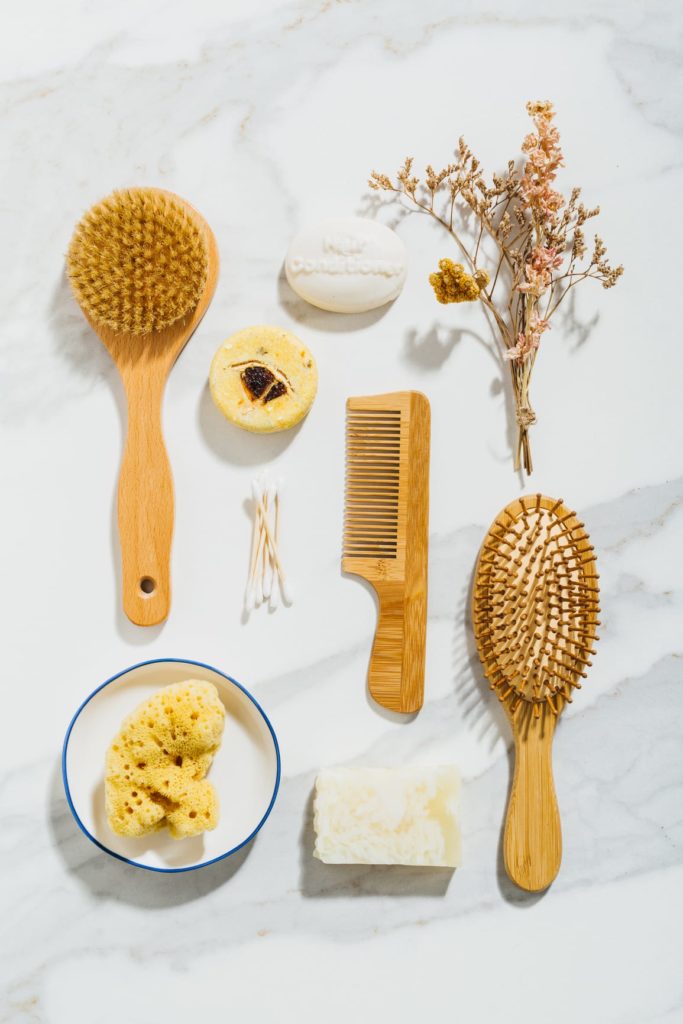
Dolke says a new habit does not just come down to willpower. “We need to create a routine that makes a habit automatic and enjoyable.” And the first step is to start small. “Big habits can make it harder for us to keep our motivation, so creating a tiny new habit makes it much easier to succeed.” For example, if you’re new to exercise, start with a daily short walk at the same time every day and once that becomes routine, you can expand to different exercises during that dedicated time slot. So for my cold showers, if I start by turning to cold for 5 seconds and build from there, I’m more likely to have success. “If we try going all-in, it might be overwhelming and make us want to quit,” says Dolke. And if you have a list of things you’d like to make a habit of, introduce them one at a time. “If we try tackling too many at once, we could get frustrated if they don’t all work and quit altogether.”
Dolke’s second tip for getting started: Do it every day. “Habits form faster when we do them daily.” If you’re trying to add in regular exercise, for example, “Do some small exercise, like a yoga pose or a walk, every day, rather than trying to get to the gym or a class five times a week.” Forming the habit and carving out the time as part of everyday life gives you a better chance at success.
What About Timing?
Is there an ideal time to start a new habit? For instance, a global pandemic — good or bad timing? Good, says Dolke. “Now is a good time to form new habits, as we have more time to ourselves, and we can dedicate some of our efforts to forming new habits.” If something seems to you mentally distressing, however, now is not the time to add to your already-stressed load. Concentrate on habits you want to form because they will bring joy and positivity to your life.
Positive Associations
I’m so good at forgetting to do my wonderful new habits. Solution? Make it easy to remember, says Cable. “One of my favorite beauty habits is putting oil on the ends of my hair before bed.” In order to remember to do this, Cable puts the oil next to her toothbrush. “Incorporate your new habit with something else you regularly do.” So keeping a spoon and my apple cider vinegar on the kitchen counter next to the coffee machine is a great reminder to take that morning spoonful until it’s ingrained in my morning routine.

Speaking of associations, try to make the new habit as pleasurable as possible, says Cable so “you look forward to doing it.” For example, she chooses a yummy scent for her hair oil, to make it that much more of an enjoyable experience. For me, that could mean doing a light mask while listening to my favorite music or podcast.
Patience is a Virtue
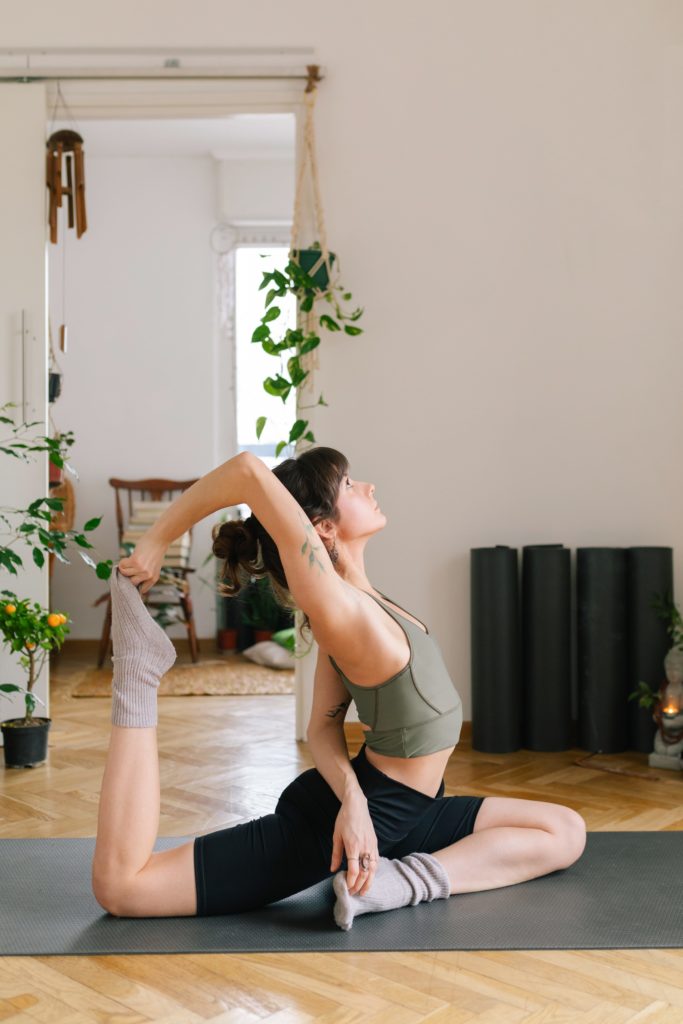
In the era of instant gratification, many of us ditch something if it isn’t delivering immediate results, whether it’s a diet or a hair mask. Cable says clients quit using a product regularly “when they don’t see a quick change.” But with a bit of time and “regular use, you will see a change.” And while that applies to consistently using a hair mask or brow serum, you may also never see or feel a change of any measurable quantity (like my desire to remove as much plastic from my kitchen as possible). But achieving a change will improve your mood if nothing else.
Remember that the amount of time it takes to form a new habit “varies from person to person,” says Dolke. But on average, “It takes around 21 days to form a new habit and then a little more than two months before the new habit becomes automatic.”
Reward and Remind
Most of us respond well to rewards, and not just at the finish line.“It can help to add in some immediate rewards to help you form the habit,” says Dolke. For instance, “Listening to good music while running or rewarding yourself with your favorite show and a healthy hot chocolate after your day has ended can reinforce a habit.”
Or set a prize for yourself at the end of a month or maybe it’s when you’ve conquered six new habits —whatever parameters you choose. Not sure what to make as the reward? Set aside time for doing your favorite relaxing thing, splurge on a massage or other spa treatment, buy yourself a little gift. Whatever motivates you, that’s how you pick your reward.
And if you start to falter and lose motivation, “Ask yourself why you wanted to create this new habit in the first place,” says Dolke. And remember, “Every day, you are getting better at forming the habit, so push through!”
We only recommend products we have independently researched, tested, and loved. If you purchase a product found through our links, Sunday Edit may earn an affiliate commission.
